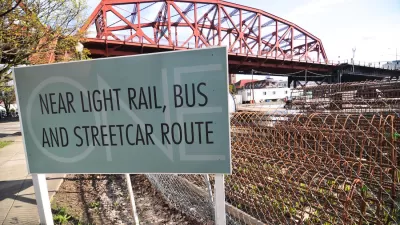On the eve of the Super Bowl, Richard Florida attempts to answer one of the most critical debates concerning metropolitan vitality today -- which is the superior sports town: Boston or New York?
When the Patriots and Giants face off on Sunday in Indianapolis to repeat their epic Super Bowl match-up of four years ago, New York and Boston will reignite what is one of the fiercest rivalries in sports (and civic boosterism).
Working with Patrick Adler, UCLA urban planning doctoral student, Florida took a scientific approach to solving the debate. Unfortunately for boosters of either city, using a 'success rate index', "Boston and New York are indistinguishable, each having earned championships in roughly ten percent of the seasons they have competed in."
However, depending on how you adjust the time frame and parameters of the analysis, an argument can be made by each city for its dominance.
"When it comes to total championships across the major professional sports leagues, the advantage is New York's. The Big Apple's teams have won more in the long run, taking home 59 championships since 1903, nearly one in five of all championships (17 percent), compared to 33 for Boston, (or 9 percent)."
"But Boston has performed much better in the short-run. 'Every Boston professional sports team has outperformed its New York counterpart over the last decade,' according to ESPN's Gordon Edes. "Even if you combine the Jets and Giants and Yankees and Mets, the Patriots and Red Sox have won more titles than all four of those New York teams combined since 2001."
FULL STORY: New York vs. Boston: Which Is the Better Sports Town?

Alabama: Trump Terminates Settlements for Black Communities Harmed By Raw Sewage
Trump deemed the landmark civil rights agreement “illegal DEI and environmental justice policy.”

Planetizen Federal Action Tracker
A weekly monitor of how Trump’s orders and actions are impacting planners and planning in America.

Why Should We Subsidize Public Transportation?
Many public transit agencies face financial stress due to rising costs, declining fare revenue, and declining subsidies. Transit advocates must provide a strong business case for increasing public transit funding.

Understanding Road Diets
An explainer from Momentum highlights the advantages of reducing vehicle lanes in favor of more bike, transit, and pedestrian infrastructure.

New California Law Regulates Warehouse Pollution
A new law tightens building and emissions regulations for large distribution warehouses to mitigate air pollution and traffic in surrounding communities.

Phoenix Announces Opening Date for Light Rail Extension
The South Central extension will connect South Phoenix to downtown and other major hubs starting on June 7.
Urban Design for Planners 1: Software Tools
This six-course series explores essential urban design concepts using open source software and equips planners with the tools they need to participate fully in the urban design process.
Planning for Universal Design
Learn the tools for implementing Universal Design in planning regulations.
Caltrans
Smith Gee Studio
Institute for Housing and Urban Development Studies (IHS)
City of Grandview
Harvard GSD Executive Education
Toledo-Lucas County Plan Commissions
Salt Lake City
NYU Wagner Graduate School of Public Service



























